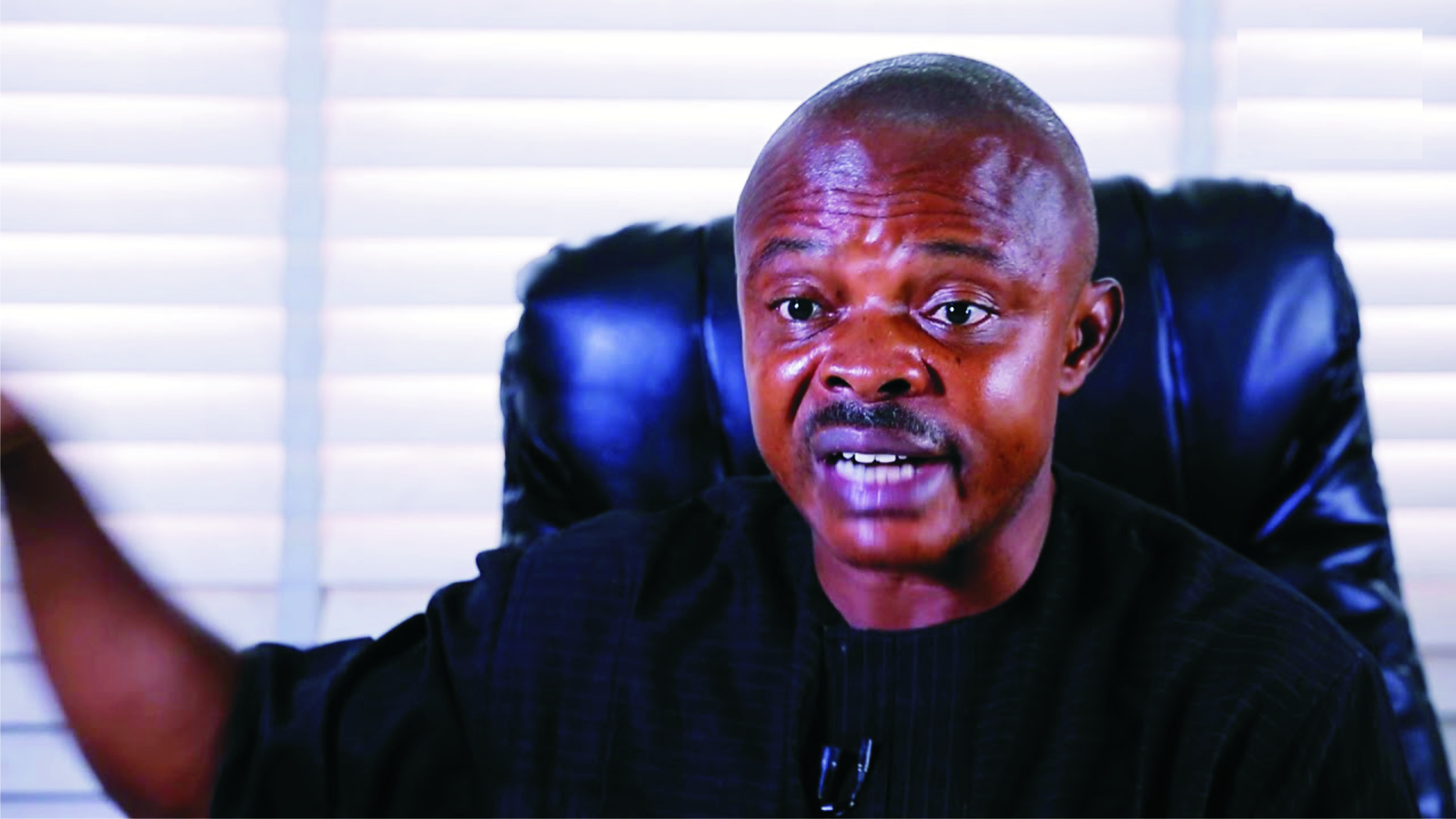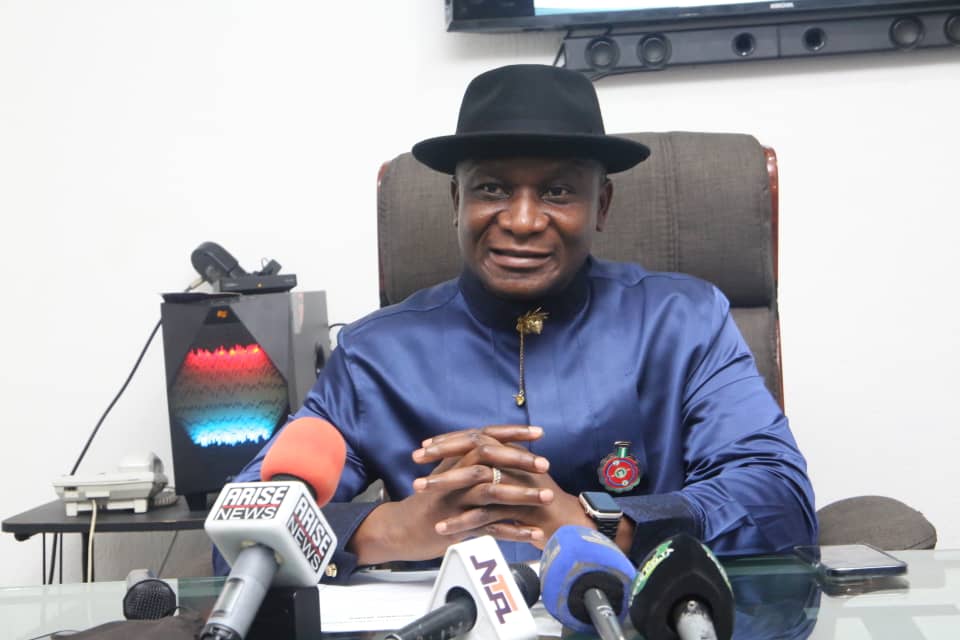News
Nigeria’s Crude Oil Production Rigs Drop By 37.5%

The number of functional crude oil production rigs in Nigeria decreased by 37.5per cent to just 10 operational rigs in March, 2022, the Organisation of Petroleum Exporting Countries (OPEC) has said.
An oil rig, offshore platform, or oil and/or gas production platform is a large structure with facilities to extract, and process petroleum and natural gas that lie in rock formations beneath the seabed.
Nigeria is a strong member of OPEC and has been championing activities of the group for decades, though failing lately in meeting its monthly oil production quota as approved by the organisation.
Data from OPEC’s latest Monthly Oil Market Report for April 2022, last Friday, showed that Nigeria’s operational oil rigs had been on the decline since 2019.
In its world rig count and units, OPEC stated that in 2019 Nigeria had an average of 16 functional rigs, but this dropped to 11 in 2020 and crashed further to an average of seven in 2021.
In fact, the organisation revealed that the country’s rigs dropped to as low as five in the second quarter of 2021, before picking up to 10 in the third quarter of same year, but eventually dropped again to seven in the fourth quarter of last year.
It moved up to eight functional rigs in the first quarter of this year, going by OPEC data, as the organisation’s report further showed that Nigeria’s oil rigs were eight in February, 2022.
The rig count appreciated marginally in March this year to 10.
Hence, the fluctuations in Nigeria’s rig counts indicated that it dropped by from an average of 16 in 2019 to 10 in March, 2022, representing a decrease of 37.5per cent.
Meanwhile, the report showed that aside from Iran which had maintained 117 rigs since 2019, some other oil-producing nations witnessed varying degrees of declines in their rig counts.
The rig counts of Saudi Arabia, Algeria, and the United Arab Emirates, for instance, also dropped from 115, 45 and 62 to 74, 30 and 41, respectively between 2019 and March, 2022, according to OPEC data.
However, countries such as Angola, Venezuela and Libya, for instance, saw a marginal rise in the number of functional oil rigs in their various domains.
Amidst the drop in oil rig count for Nigeria, the country has also suffered massive decline in its crude oil production making it unable to meet its OPEC approved oil production quota since this year.
Operators in Nigeria’s oil and gas sector had also attributed the drop in oil production to oil theft, while the government had raised concerns about the exit of international oil companies from Nigeria due to the global push for net zero carbon emission.
Also an analysis of the OPEC report showed that Nigeria’s oil production had been falling since January this year.
It was observed that while the country produced 1.413million barrels of crude oil daily in January, this dropped to 1.378million barrels per day in February, and plunged further to 1.354million barrels per day in March.
The situation confirmed concerns by both government officials and International Oil Companies operating in Nigeria that crude oil production in the country had been on the decline since 2021.
On March 24, 2022, for instance, the total value of Nigeria’s crude oil stolen between January 2021 and February 2022 was about $3.27billion (representing N1.361trillion at the official exchange rate of N416.25 to the dollar), according figures from the Nigeria Upstream Petroleum Regulatory Commission.
International oil companies and their counterparts in Nigeria also stated recently that the massive oil theft across the country posed a threat to not just their existence, but to the Nigerian economy.
But NNPC’s Group Managing Direction, Mele Kyari, had announced recently that measurable outcomes against the massive crude oil theft in the Niger Delta would be visible in three weeks’ time.
Kyari had said, “As we speak now there is massive disruption to our operations as a result of the activities of vandals and criminals along our pipelines in the Niger Delta area.
“This has brought down our production to levels as low as we have never seen before. Today we are doing less than 1.5million barrels per day simply because some criminals have decided that they should have some infractions on our pipelines.”
Nigeria’s oil production quota by OPEC has revolved around 1.8million barrels per day.
The country has repeatedly missed this target due to oil theft.
“And that clearly is the biggest form of business disruption that we are facing today,” the NNPC boss had stated.
He added, “This kind of engagement, the certifications that we have today around our systems and processes should be able to respond to this. And part of the response is to bring in the best framework possible to contain this situation.
“I’m happy to tell us that enormous work is going on between us and the Federal Government recognised security agencies, our partners, particularly those on the corridors that are impacted, and also the community members.
“And I’m very optimistic that within the next two to three weeks some very measurable outcomes will come so that our businesses will continue. As we speak now, the Nigerian Navy is launching a massive operation to contain oil theft in the Niger Delta.”
News
May Day: Labour Seeks Inclusiveness In Policy-making

The Organised Labour yesterday, called on the Federal Government to ensure inclusiveness in policy making and guide against erosion of rights, such as free speech and association.
The President, Nigeria Labour Congress (NLC), Mr Joe Ajaero made the call at the 2025 Workers’ Day celebration held at the Eagle’s Square, Abuja.
The Tide source reports Ajaero and the President, Trade Union Congress, Mr Festus Osifo delivered a joint statement on behalf of the organised labour at the event.
Ajaero described May Day as, not only a moment to honour workers’ sacrifices, but also a platform to demand justice and accountability from those in public office.
He frowned at the alleged suppression of protests, and the erosion of rights of workers by some agents
According to him, workers have a duty to resist economic injustice, insecurity, and policies that undermine their dignity.
Speaking on the theme of the day, the NLC President underscored the need for Nigerian workers to reclaim the civic space and resist policies that contribute to worsening economic conditions.
“Our theme this year – “Reclaiming the Civic Space in the midst of Economic Hardship – reflects the urgent need for citizens to protect democracy and push back against repression.
“The civic space, where Nigerians express their concerns and challenge injustices is shrinking.
“If we fail to reclaim this space, the foundation of our democracy risks collapse,” he said
Ajaero, therefore, urged workers to unite and resist division, fear, and despair.
He also urged them to mobilise and organise for change, declaring that the right to demand better conditions is non-negotiable.
“Without workers, there is no society; without labour, there is no development. We must take our place in the fight for economic justice and democratic governance.”
Speaking in the same veins, Osifo said workers are the backbone of the nation—the educators, healthcare providers, builders, farmers, and innovators who sustain its economy -.
He stressed the need for the labour to reclaim the civic space even in the midst of economic hardship.
News
2025 UTME: JAMB Disowns Site Requesting Payment From Candidates

The Joint Admissions and Matriculation Board (JAMB) has disassociated itself from a fraudulent site requesting payments from candidates who missed the ongoing 2025 Unified Tertiary Matriculation Examination (UTME).
The board said that the site, “Copyrightwriter Personal J Rescheduling Flw” and account number 8520641017 at Sterling Bank, associated with it, are scam.
The disclaimer is contained in a statement made available to newsmen in Abuja on Thursday by the Board’s Public Communication Advisor, Dr Fabian Benjamin.
Benjamin said the account is being exploited to defraud unsuspecting candidates who missed their UTME.
“We issue this urgent notice to inform the public about this nefarious scheme targeting candidates who were unable to participate in the UTME.
“Some unscrupulous individuals are deceitfully soliciting payments of N15,700 under the false pretence of offering rescheduling services for the examination.
“Let us be unequivocal: this, it is a blatant scam, and we are confident that the public will not fall prey to such cheap and regressive tactics.
” The individuals behind this scam have no affiliation with JAMB or any legitimate government agency.
“The account details provided in these communications are entirely fictitious and bear no connection to any official processes; they exist solely for the purpose of perpetrating fraud,” he said.
Benjamin called on Sterling bank to take immediate and decisive action against this criminal activity.
According to him, JAMB has reported the matter to the relevant security agencies and actively pursuing those responsible for this deceitful act.
He further said that “JAMB does not reschedule examinations for candidates who miss their scheduled tests due to reasons unrelated to the Board’s actions”.
He, however, said that the Board is conducting a thorough investigation for candidates whose biometrics failed during verification and were thus unable to sit for the examination.
He said those without discrepancies would be invited to retake the examination at no cost , stressing that “no cost is required”
“It is imperative to understand that JAMB does not charge any fees for examinations after a candidate has completed their registration.
“We strongly urge all candidates to remain vigilant and not to succumb to these fraudulent schemes.
“Protect yourselves and report any suspicious activity immediately,” he explained.
News
NDDC Seeks UN’s Support To Accelerate Niger Delta Development

The Niger Delta Development Commission (NDDC) has expressed its willingness to partner with the United Nations (UN) to accelerate the development of the Niger Delta region.
Dr Samual Ogbuku, Managing Director of the NDDC, made the appeal in a statement issued by the commission’s Director of Corporate Affairs, Mrs Seledi Thompson-Wakama, in Port Harcourt on yesterday.
According to the statement, Ogbuku sought the UN’s support during his visit to the UN Resident and Humanitarian Coordinator (UNRHC), Mr Mohammed Fall, at the UN regional office in Abuja.
He called on the global body to provide the NDDC with technical assistance and expert services to support the region’s development.
“We are eager to collaborate with the UN, recognising that the state governments in the region and the NDDC alone cannot achieve the level of regional development required,” he said.
Ogbuku identified key areas where support would be needed, including the provision of portable and affordable drinking water powered by high-tech solar energy sources.
He also highlighted the importance of reforesting the mangrove swamps, which have been severely damaged by decades of environmental degradation caused by oil exploration in the Niger Delta.
“Although the NDDC has made progress in providing solar-powered streetlights across the region, we still require UN support in delivering solar energy solutions for residential buildings.
“We also wish to explore the possibility of installing solar mini-grids in homes across communities, which would boost local commerce and trade,” he added.
The NDDC managing director further appealed for increased UN involvement in areas such as healthcare, education, youth training, gender development, and food security.
Ogunku stated that such interventions would significantly enhance the standard of living in the region.
In response, Fall affirmed the UN’s readiness to collaborate with the NDDC to fast track development in the Niger Delta.
He assured that the UN would support initiatives in food security, job creation, education, and renewable energy, among other areas.
“We aim to approach development in the Niger Delta holistically, rather than focusing solely on environmental pollution.
“This is merely an entry point; however, the UN’s development vision aligns with the Sustainable Development Goals (SDGs), which are designed to positively impact various aspects of people’s lives,” Fall stated.
He assured the NDDC of continued and fruitful engagements to drive the region’s development.

